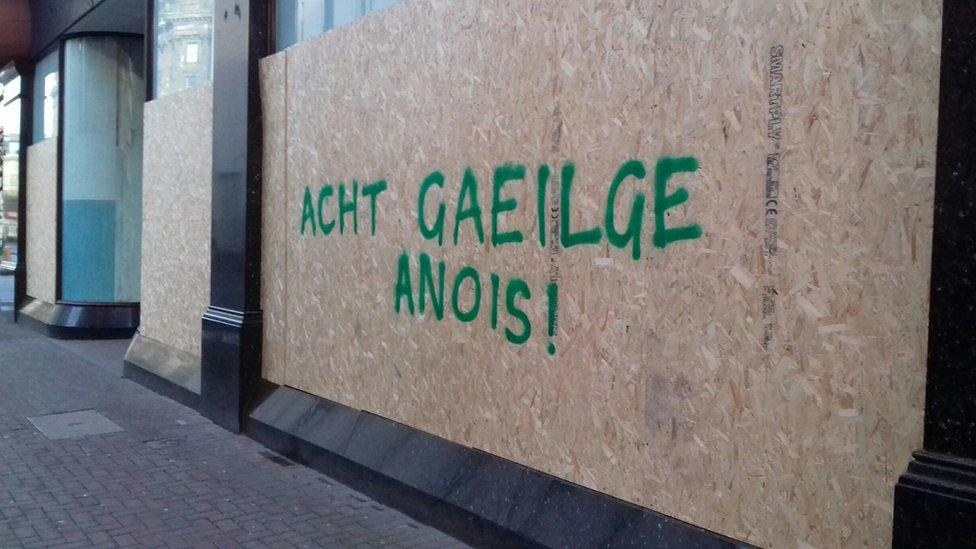Council of Europe calls for Irish language act
- Published
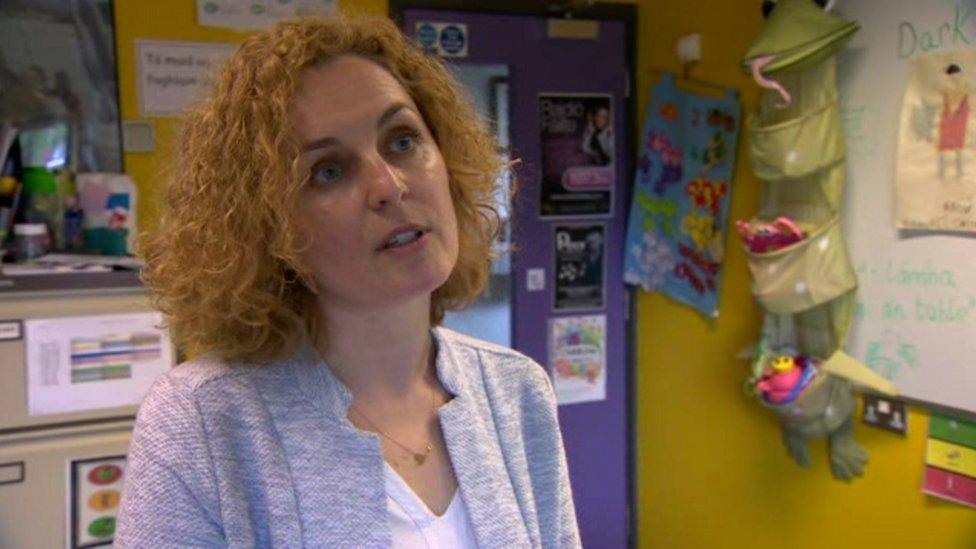
Dr Aleksandra Oszmiańska-Pagett is the head of the delegation
The head of a delegation from the Council of Europe (CoE) has renewed calls for an Irish language act.
Dr Aleksandra Oszmiańska-Pagett was speaking during a visit to Belfast by a committee of language experts from the council.
They were finding out how the Irish and Ulster-Scots languages are being promoted and protected in Northern Ireland.
The council is Europe's top human rights watchdog with 47 member states.
The Strasbourg-based organisation reports on how states comply with the European Charter for Regional and Minority Languages.
However, the UK has failed to provide information on Irish and Ulster-Scots for the council's latest report.
'Core and crux of the problem'
Members of the council's committee of experts, who write the language reports, were in Belfast on Monday where they met a number of language activists.
They also visited pupils at Bunscoil Phobail Feirste, the largest Irish-medium primary school in the city with more than 350 pupils.
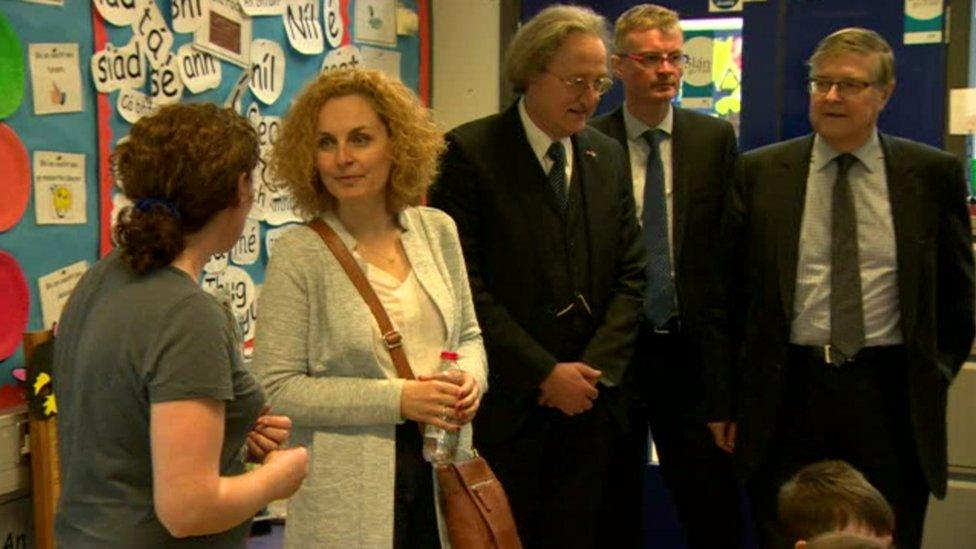
The delegation visited Bunscoil Phobail Feirste on Monday
Speaking there, Dr Oszmiańska-Pagett said language legislation was vital.
"That is the core and the crux of the problem," she said.
"To have the legislation in place is one of the most important obligations stemming from the charter, from just the legal point of view.
"But from a practical point of view this is essential because then education, culture and media are not held hostage to political tensions."
She added: "If there is an Irish language bill then catering for children who would like to learn through the medium of Irish would be a statutory duty rather than a matter of atmosphere."
'Dysfunctional treatment'
The Council of Europe had previously called for Irish language legislation in their 2014 report.
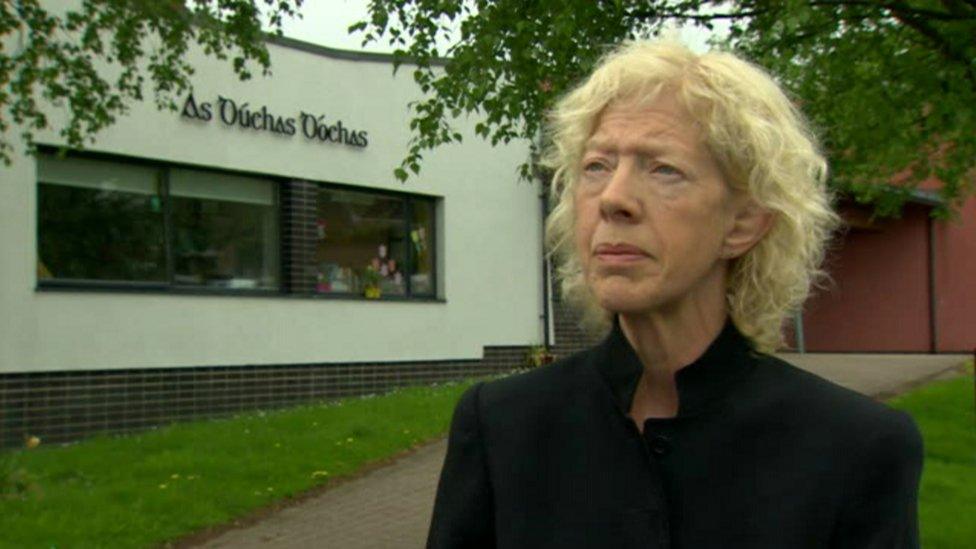
Janet Muller said there was a "specific problem" between the Irish language and politics in Northern Ireland
It called on the UK "to adopt and implement a comprehensive Irish language policy, preferably through the adoption of legislation".
Janet Muller from the Irish language organisation Pobal said she was frustrated that no progress had been made since then.
"The way that the Irish language has been treated here is dysfunctional," she said.
"And that's in comparison with all the other countries of Europe and all the other languages.
"There is a very specific problem here in relation to the political situation and the way that the Irish language is dealt with.
"I think that they want to see that resolved and they want to see the British government act to do that."
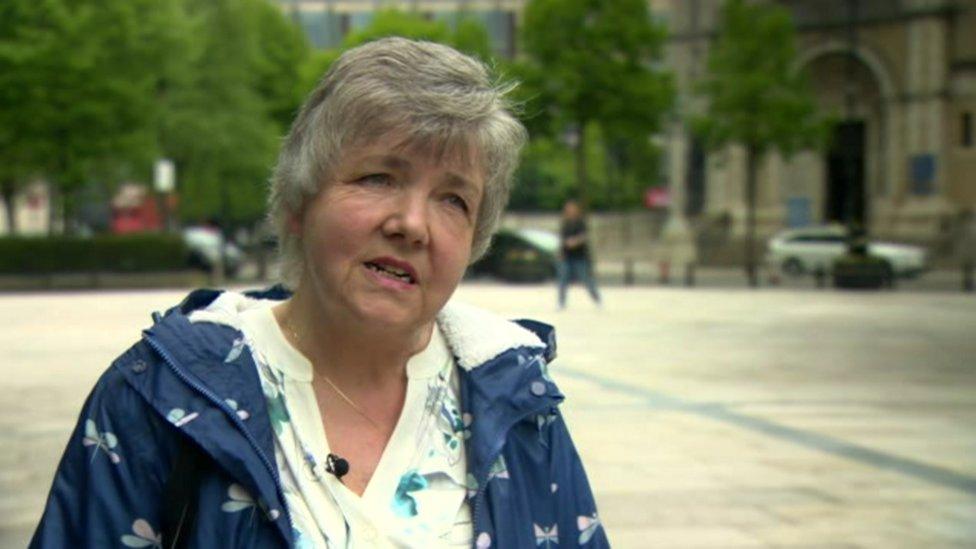
Anne Smyth says there has been "precious little progress" in terms of the progress of Ulster-Scots over the life of the assembly
'Not enough support'
Anne Smyth from the Ulster-Scots Language Society also met the visiting experts and also expressed frustration at the lack of progress in advancing Ulster-Scots.
"We have made precious little progress over the life of the assembly," she said.
"That's not for want of will from native speakers and organisations like my own.
"We're just not getting the support that we need in terms of capacity building or resources."
However, the council cannot force the UK government or the Northern Ireland executive to implement the recommendations in its reports.
That has previously led some critics to accuse the council of being a talking shop with little power, other than diplomatic pressure.
- Published11 May 2018
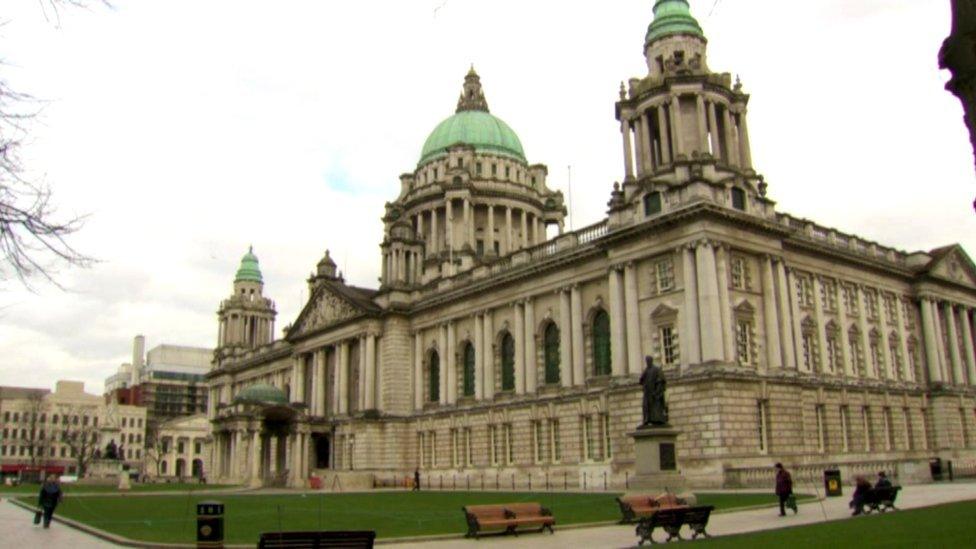
- Published13 February 2018
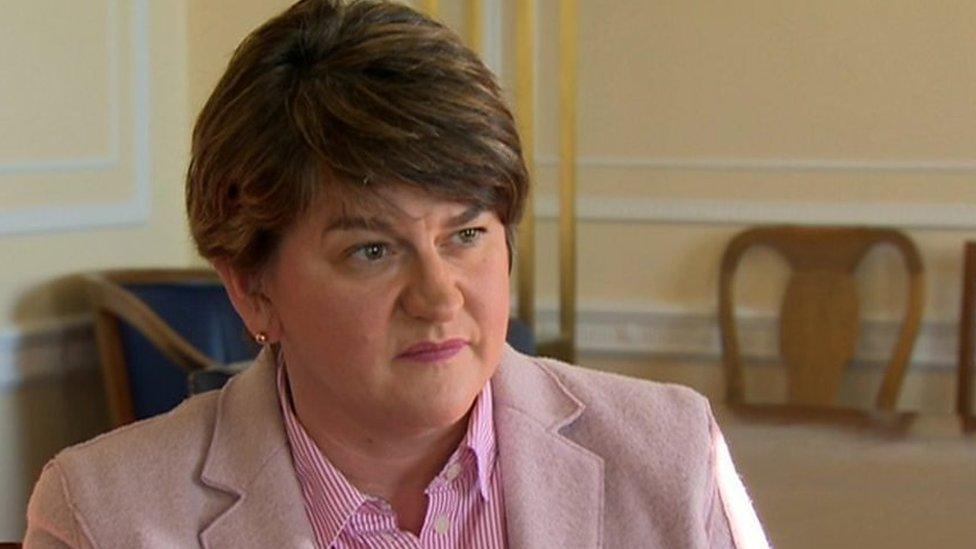
- Published9 February 2018
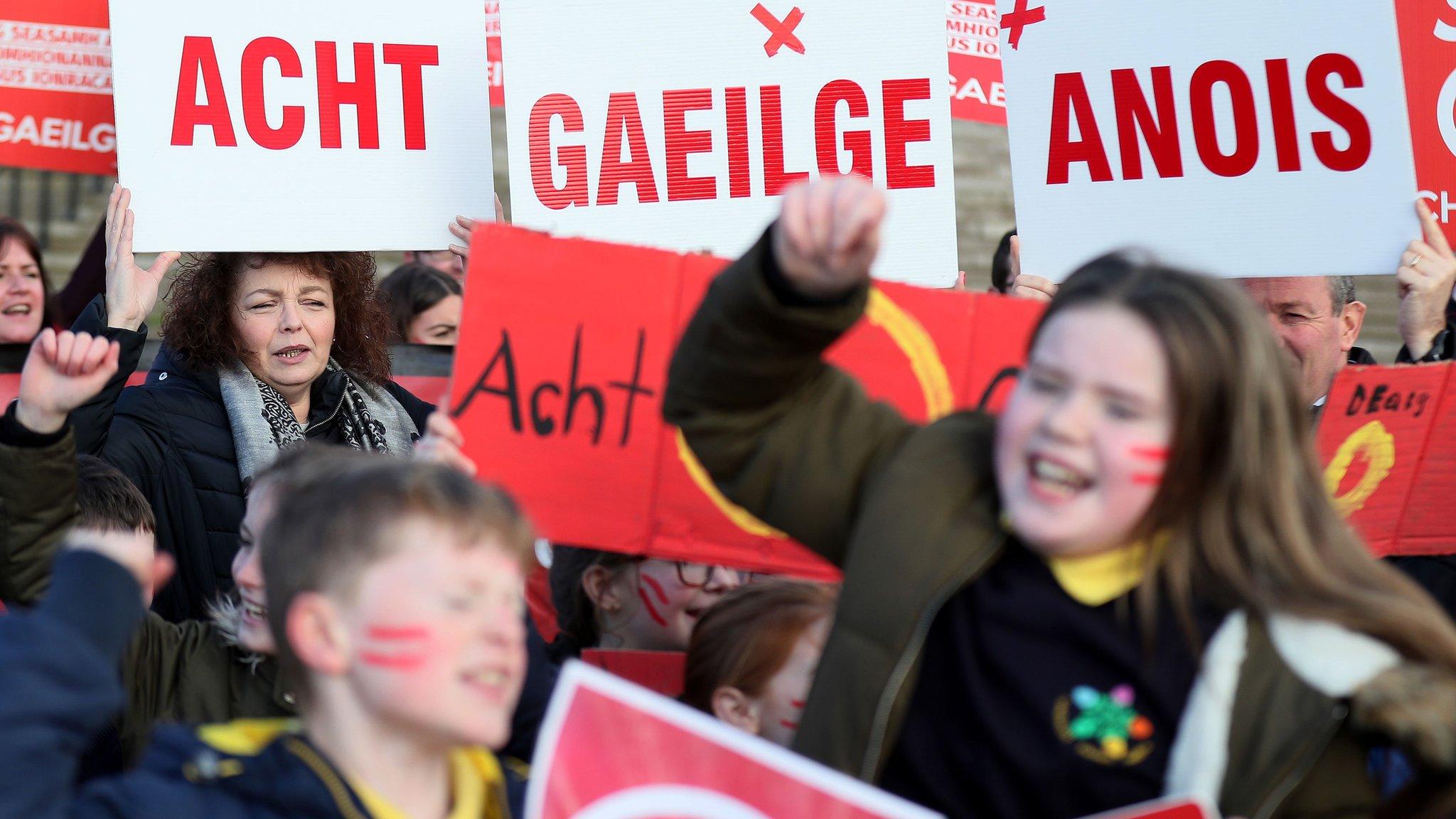
- Published28 June 2017
